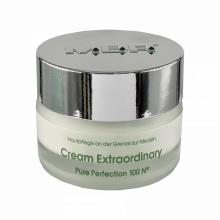Acne & Skin Aging
How Acne Affects Aging of the Skin
As we have already discussed, acne generally starts around puberty and often ends by the early to middle twenties. Some people, however, will experience outbreaks of it into middle age. Many people do not know that if left untreated, acne can affect the skin's aging process. Also, some of the acne treatments now used can also cause damage to the delicate skin and cause premature aging.
Constant inflammation of the skin has been shown to speed up the aging process. Since acne is a skin disease that involves inflamed skin, acne-prone individuals often have skin that ages faster than those who are not. In addition, the inflammation caused by acne produces free radicals and activates the enzymes that break down the skin’s collagen and elastin, both of which help the skin stay younger and age slower. In a nutshell, taking care of acne and seeking treatment is actually one of the best ways to help your skin stay healthy and to avoid the effects of premature aging. In addition to using an effective sunscreen when out in the sun, anyone can do one of the best things to help their skin and prevent acne.
The better you treat your skin, the better it will age. If an acne treatment causes irritation or dryness, you should speak with your doctor about reducing these side effects. Since dryness, irritation, and inflammation contribute directly to the skin’s aging, it is important to use a treatment that has these side effects carefully. These conditions can actually slow down the skin’s ability to stay healthy.
Benzoyl peroxide is often used to treat acne. It generates oxygen free radicals that, in turn, kill bacteria that can cause acne. This is a very effective method of controlling acne, and bacteria do not resist it over time. However, benzoyl oxide does not just kill the bacteria. It also can damage the skin by drying it out, causing irritation and damaging the skin cells. Using benzoyl peroxide occasionally results in a lesser amount of damage to the skin. However, long-term use, and in high concentrations, can cause damage to the skin that results in aging. For those people who find benzoyl peroxide to be the only effective treatment for acne, it is best to use it in the lowest concentration possible.
One of the most commonly prescribed treatments is topical retinoids (vitamers and vitamin A). Even though they are very effective, in many cases, in treating acne, they can cause skin irritation, dryness, and skin sensitivity to UV light, all of which contribute to skin aging. Therefore, it is essential to use sunscreen when using topical retinoids.
However, topical retinoids can help the skin. Tretinoin, also known as Retin-A, has been approved by the FDA as an anti-wrinkle treatment. So, there is evidence that even though topical retinoids may cause some skin damage, if used properly, they can also help the skin to heal and help slow the signs of aging. This is not the case for everyone who uses topical retinoids, though. If acne responds well to low dosages of retinoids and if the skin does not suffer from long-term irritation, then those cases can end up benefitting from the use of topical retinoids for both acne and to slow the signs of aging. If skin irritation does develop with topical retinoids, then it is best to explore other treatments that do not cause skin irritation.
Products with Retinols
Another common part of acne treatment is exfoliation with either alpha or beta-hydroxy acids. By removing the top layer of dead skin cells, the theory is that it will cleanse the pores and allow other solutions to penetrate the skin easier to reduce the chance of comedones from forming. There are some exfoliation benefits, as it may help rejuvenate the skin, promoting better circulation. However, care should be used not to exfoliate too often or with harsh material since that may lead to skin irritation and dryness, leading to premature aging.




